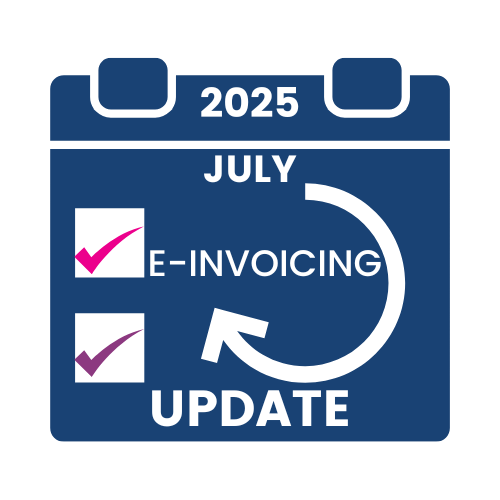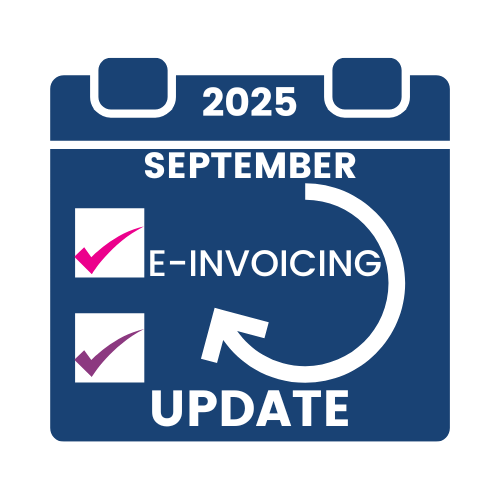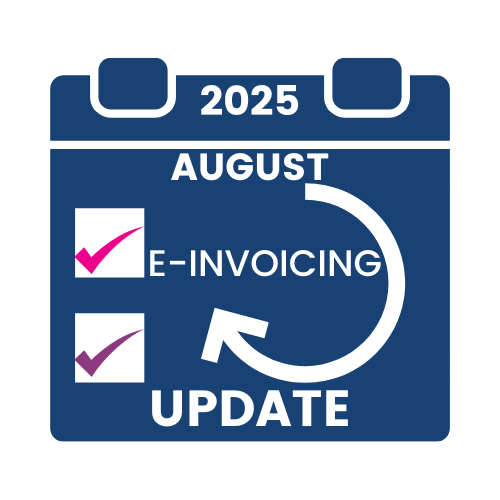Moldova
A proposal has been announced in Moldova to enable the use of virtual cash registers and electronic tax receipts (eBon). The initiative aims to enhance the business environment by reducing operational costs and providing accessible digital solutions for both merchants and customers.
Malaysia
The Inland Revenue Board of Malaysia has announced a further revision to the e-invoicing implementation timeline. Certain small and medium-sized businesses will now have additional time to comply, with a phased rollout extending into 2026.
Updated Peppol PINT specifications for Malaysia were released. Version 1.2.0 includes enhancements for both billing and self-billing processes and aligns with the latest IRBM requirements to support Malaysia’s national e-invoicing mandate.
Vietnam
New guidelines for invoices and related documents
The Ministry of Finance’s Circular No. 32/2025/TT-BTC, effective June 1, 2025, replaces Circular No. 78/2021/TT-BTC. This Circular provides implementation guidelines on e-invoice issuance, numbering formats, and compliance, following the enactment of Decree No. 70/2025/ND-CP.
The 15th National Assembly has approved reducing the Value Added Tax (VAT) rate from 10% to 8% until December 31, 2026, to boost economic activity. This measure expands the range of eligible goods and services, with further guidance expected from the Government.
UAE
The PASR and other supporting technical documents are essential for both service providers and businesses operating in the UAE. Staying up to date with these evolving requirements is crucial for ensuring compliance and successful integration.
Croatia
The government of the Republic of Croatia has approved the “Law of Fiscalization”, which makes e-invoicing and reporting mandatory for B2B transactions, among other modifications.
Italy
B2C healthcare e-invoice ban made permanent
On June 4, 2025, the Council of Ministers approved a legislative decree that amends tax compliance provisions, including the permanent prohibition of electronic invoicing via the SdI for healthcare services provided to individuals, to protect the confidentiality of healthcare data. This measure also aims to prevent costly infrastructure development and additional expenses for healthcare providers.
Poland
On June 16, the Polish Ministry of Finance released an updated set of draft laws regarding mandatory e-invoicing via KSeF, which was further discussed during the Council of Ministers meeting on June 17.
On June 30, 2025, the Polish Ministry of Finance (MoF) published the highly anticipated KSeF 2.0 API documentation, following the release of the final FA_VAT (3) schema on ePUAP on June 25, 2025. Additional guidelines have also been issued, covering QR codes, offline modes, and KSeF certificates.
Latvia
A Draft Cabinet Regulation on the circulation and reporting of structured electronic invoices is open for public consultation from June 9 to June 23, 2025, following recent amendments to the Latvian Accounting Law. The regulation outlines the mandatory e-invoicing and reporting procedures for the State Revenue Service.
Dominican Republic
The Dominican Republic’s Tax Authority (DGII) has announced through Notice 12-25 that a specific group of taxpayers will receive an extension to comply with the country’s e-invoicing mandate.
Denmark
On June 26, 2025, the Danish Business Authority announced a review of the national OIOUBL e-invoicing format and the Nemhandel infrastructure. Following the postponement of OIOUBL 3.0, the authority is now considering a minor update instead of a major release and will assess whether Denmark still requires a national format and infrastructure in light of Peppol’s increasing adoption.
Netherlands
In a published letter, the Dutch government outlines its plan for implementing e-invoicing and digital reporting requirements that align with the ViDA proposal. They express the intent to proactively complete the parliamentary process and submit legislation two years before the entry into force on July 1, 2030.
Germany
Germany’s Federal Ministry of Finance (BMF) published a second draft letter on June 25, 2025, amending the VAT Implementation Decree (UStAE) and providing additional guidance on e-invoicing compliance. The draft is open for industry feedback and outlines requirements that will apply to all transactions from January 1, 2025.
Singapore
Participants in the InvoiceNow network will have new functionalities to facilitate invoice automation. Advanced Ordering will support purchase orders, their variances, and cancellations. A new document specification, SG BIS Order Balance, has been created to complement the features from Advanced Ordering.
Norway
The Norwegian Ministry of Finance has published a proposal to introduce mandatory digital bookkeeping and e-invoicing for businesses with accounting obligations in Norway. Starting in 2028, the phased plan aims to modernize business processes and ensure compatibility with European standards.
Mauritius
Mauritius has announced an expansion of its e-invoicing requirements, lowering the annual turnover threshold for mandatory compliance from 100 million MUR to 80 million MUR. Businesses will be required to submit transaction data electronically, with implementation expected during 2025-2026.
EU
The EU Council has agreed on a partial negotiating mandate for a major reform of the EU customs framework, enabling negotiations with the European Parliament. The reform aims to modernize customs operations across the EU, introducing a new customs authority, a central data hub, and updated rules for e-commerce and trusted traders.
China
The Chinese Ministry of Finance recently published the Notice on Promoting the Application of Electronic Voucher Accounting Data Standards, a leap toward digitalizing financial and accounting practices. This builds on the progress made by the pilot program initiated in 2022, representing a nationwide rollout of standardized digital accounting processes.
Tunisia
Tunisia continues its gradual roll-out of the e-invoicing mandate by extending it to high-volume business-to-business sectors and making e-invoicing mandatory for all transactions involving Tunisian governmental entities. Additionally, penalties have been introduced to ensure compliance for taxpayers in scope.
Saudi Arabia
The Zakat, Tax and Customs Authority (ZATCA) has announced a further extension of the grace period for its cancellation of fines and penalties initiative. The extended grace period will be effective for six months, from July 1, 2025, to December 31, 2025.
Paraguay
The National Directorate of Tax Revenues (DNIT) released General Resolution No. 21/2024, where the schedule establishing the mandatory issuance of Electronic Tax Documents (DTE) for new groups of taxpayers can be accessed
Greece
Timeline for e-invoicing for Non-Procurement Public Expenses postponed to September 1, 2025. Amendment to the obligation to submit e-invoices by economic operators revises the timeline and adds an exception to the mandatory application of electronic invoicing.





